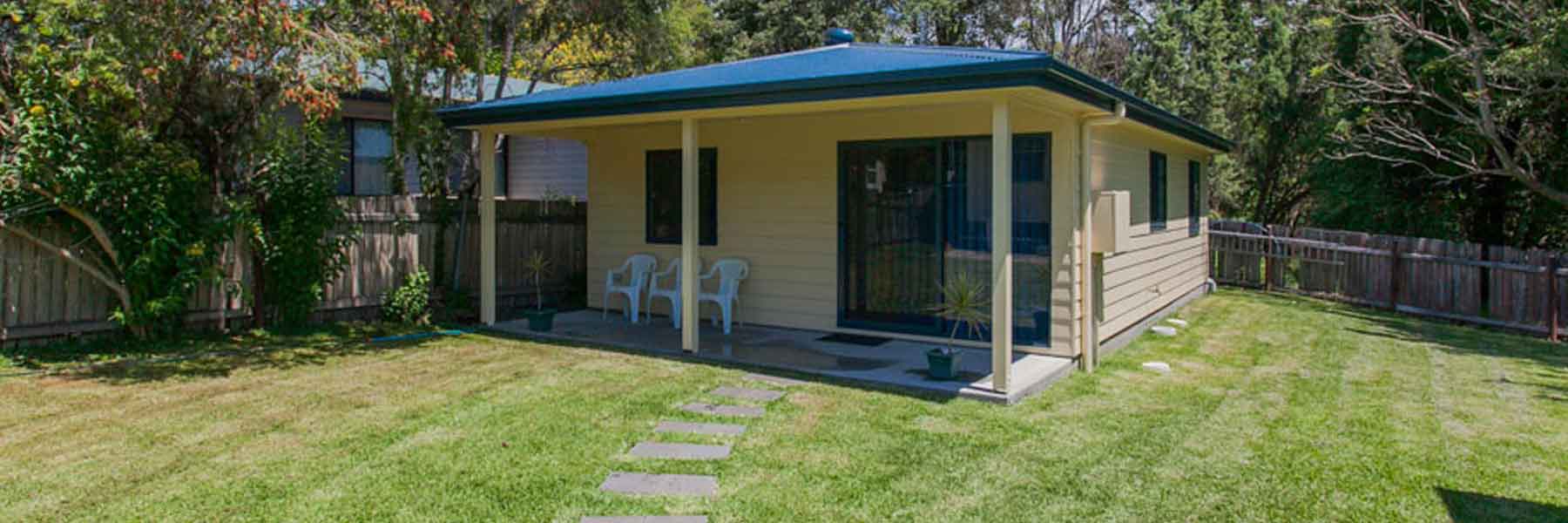Home > Home Loans > How to Buy a Second Property with No Deposit
How to Buy a Second Property with No Deposit
Author
Savvy Editorial TeamFact checked
It can sometimes seem daunting to make the leap towards buying a second property, especially if you’re still paying off your first house. However, there are ways for you to make that dream a reality without even having to fork out for a significant deposit. Read all about how to buy a second property with no deposit here.
How can I buy a second property with no deposit in Australia?
The best way to buy a second property or house without paying a deposit is through home equity. Equity is calculated as the difference between the value of your property on the market and what you owe on your current home loan. For example, if your home is valued at $700,000 and you still owe $250,000 on your home loan, your home equity is $450,000. Although borrowing from equity increases your total mortgage amount to be repaid, you can expand your equity over time if the market value rises and/or continue to make improvements to your home.
How does equity work when buying a second home?
You can buy a second property with home equity and avoid paying a lump sum upfront through a couple of popular methods: opening a line of credit (or home equity) loan or refinancing your current home loan.
- Line of credit
A line of credit serves as another loan next to your current home loan and adds flexibility to your repayment process. It functions in a similar way to a credit card, opening your home equity for you to spend on almost anything you wish to, rather than limiting you to just another home deposit.
Additionally, lines of credit can be useful to borrowers as you’ll only have to pay interest on the money you spend. For instance, if you opened a line of credit loan to access $450,000 in home equity and only ended up spending $300,000, you wouldn’t have to pay interest on the remaining $150,000 in the account. The flexibility of this type of loan can be a double-edged sword, however, as it may not have a pre-determined end date, which can cost you in the long run if it takes a while to pay back.
- Refinancing
Refinancing a current home loan is another option frequently used by borrowers looking to buy a second property. You’ll usually be able to access your property’s equity at a rate of up to 80% of your property’s value so, using the initial example once again, you would be able to access $360,000 of your home’s $450,000 equity to put towards your second property. In this scenario, you could go to either a new lender or move to another loan with the same lender to allow you to use the equity in your home.
Some lenders will offer you the chance to borrow more than 80% of your home equity but raising your loan-to-value ratio (LVR) above 80% can result in you having to pay Lender’s Mortgage Insurance (LMI), an added cost that borrowers might wish to avoid.
Case study – buying a second property with no deposit
Madeline, 38, is looking to purchase a second property but doesn’t quite have the savings to comfortably cover a deposit without restricting her other finances. She’s owned her current home for 15 years, during which she’s built up a sizeable level of equity in her property. She’s paid off half of her initial $320,000 home loan, while her $400,000 property has appreciated in value to $650,000. This means that her total home equity is $490,000.
She approaches her lender about refinancing her home loan to access her equity, where it’s determined that her usable home equity is $360,000. Madeline finds a townhouse valued at $320,000 that she thinks would be a great investment property, so she negotiates with her lender to refinance her current home loan to bring both her existing and new debt under the same repayment structure. The rental income she’ll receive from her new townhouse is determined to be a significant enough contributor to her repayments that only ten years are added to her existing 15, rather than bringing it back out to 30.
The pros and cons of buying a second property with no deposit
PROS
Swerving upfront cash
Leveraging the equity in your home loan allows you to avoid paying a significant sum out of your savings as a deposit for your new property, opening doors for you to buy your dream home.
Improving your rates
Refinancing your loan and moving to a new one allows you to look out for better interest rates and other loan conditions.
Added flexibility
Equity funds made available through a line of credit loan are very easily accessible and able to be used for just about anything that the borrower wishes.
CONS
Value drop
If your property’s value depreciates over time, your equity can be squeezed and you could be worse off financially than when you started.
Not finding tenants
Always be mindful of the fact that being able to lock in tenants will help, in large part, to cover loan payments, so not finding any might leave you struggling.
No confirmed end date
As line of credit loans often don’t have a pre-established finishing date, you could end up paying much more if you’re only getting through repayments slowly.
Other questions about buying a second property with no deposit
Generally, the minimum deposit required on a house is 5%. However, many banks won’t accept less than 20%.
Lenders will generally require that you owe less than 80% of your property’s value before it will consider your application for a no-deposit home loan. From there, the lender will determine how much of your equity is suitable for access.
No – if you’re selling your current property and haven’t found a buyer before you purchase your new one, you can use any offset savings you’ve made throughout your loan to supplement or cover your deposit. You might look to a bridging loan as a means of handling your temporary lack of finances, which is added onto your existing home loan.
Yes – getting a guarantor for your home loan can allow you to borrow up to or over 100% of your property’s value (depending on the lender) if you can’t afford a deposit and don’t want to dip into your equity. Guarantors are most common in first home buyers or low-income earner home loans, though.
No – being in a joint home loan can help your success rate in the home loan application process and make repaying the loan easier, but it won’t allow you to avoid paying a deposit. Like with any other example in this article, you’ll have to have enough equity in your current property and be earning a sufficient amount to cover loan repayments.
It’s not generally advisable, as it’s seen as a very risky financial move. Cross-collateralisation involves securing your mortgage with more than one property, so in this instance your new property would become secured by your existing one and the home loan would be consolidated into one. While you can benefit from lower interest rates and greater tax deductions on your investment property, a drop in value in one of your properties could bottom out the value of your entire portfolio.
The most important thing you can do is to prove that, even if the equity in your current property is enough to cover a second one, your income is sufficient to support an increased mortgage. If your lender doesn’t believe you’ll be able to comfortably pay it off, you won’t be approved for your home loan. Seeking pre-approval before signing a contract is always a good idea.
Not exactly – lenders will often have restrictions on the type of property or the area in which it’s located. For example, units, apartments, townhouses and rural properties are sometimes more heavily scrutinised or ruled out entirely when it comes to home loans.










